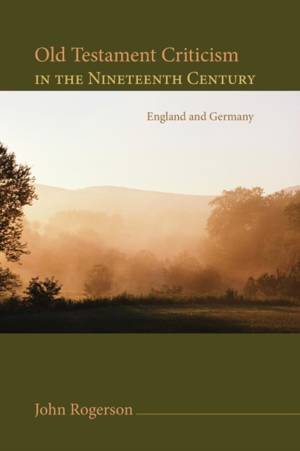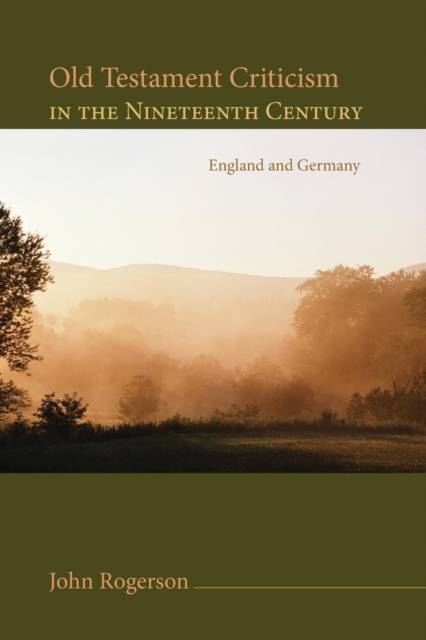
Je cadeautjes zeker op tijd in huis hebben voor de feestdagen? Kom langs in onze winkels en vind het perfecte geschenk!
- Afhalen na 1 uur in een winkel met voorraad
- Gratis thuislevering in België vanaf € 30
- Ruim aanbod met 7 miljoen producten
Je cadeautjes zeker op tijd in huis hebben voor de feestdagen? Kom langs in onze winkels en vind het perfecte geschenk!
- Afhalen na 1 uur in een winkel met voorraad
- Gratis thuislevering in België vanaf € 30
- Ruim aanbod met 7 miljoen producten
Zoeken
€ 61,45
+ 122 punten
Omschrijving
The study of Old Testament criticism requires the bridges of an important cultural gap because the home of the method and the place of its most creative use is still Germany. In this authoritative work, British scholar John Rogerson discusses two specific questions: how did the critical method arise in Germany in the nineteenth century, and how was its reception into England affected by the theological and philosophical climate? This is the first book which attempts to trace in such detail the impact of German critical method upon scholarship in England. As such it is a valuable contribution to the history of Old Testament scholarship and to the history of ideas. Part I examines German scholarship from 1800-60, from the founder of modern criticism, W. M. L. de Wette, through to the submergence of this early radicalism by the so-called positive criticism, and the confessional orthodoxy led by Hengstenberg. Part II investigates the use of Old Testament criticism in England with particular attention to contacts between Germany and England and to a comparison of the respective intellectual climates. Part III focuses again on German scholarship, particularly on the rebirth of de Wettian ideas, as expressed by Julius Wellhausen. It explains how the reception of Wellhausen in England involved a modification of his position in the light of neo-Hegelian philosophy.
Specificaties
Betrokkenen
- Auteur(s):
- Uitgeverij:
Inhoud
- Aantal bladzijden:
- 336
- Taal:
- Engels
Eigenschappen
- Productcode (EAN):
- 9781608997336
- Verschijningsdatum:
- 1/06/2010
- Uitvoering:
- Paperback
- Formaat:
- Trade paperback (VS)
- Afmetingen:
- 152 mm x 226 mm
- Gewicht:
- 458 g

Alleen bij Standaard Boekhandel
+ 122 punten op je klantenkaart van Standaard Boekhandel
Beoordelingen
We publiceren alleen reviews die voldoen aan de voorwaarden voor reviews. Bekijk onze voorwaarden voor reviews.









